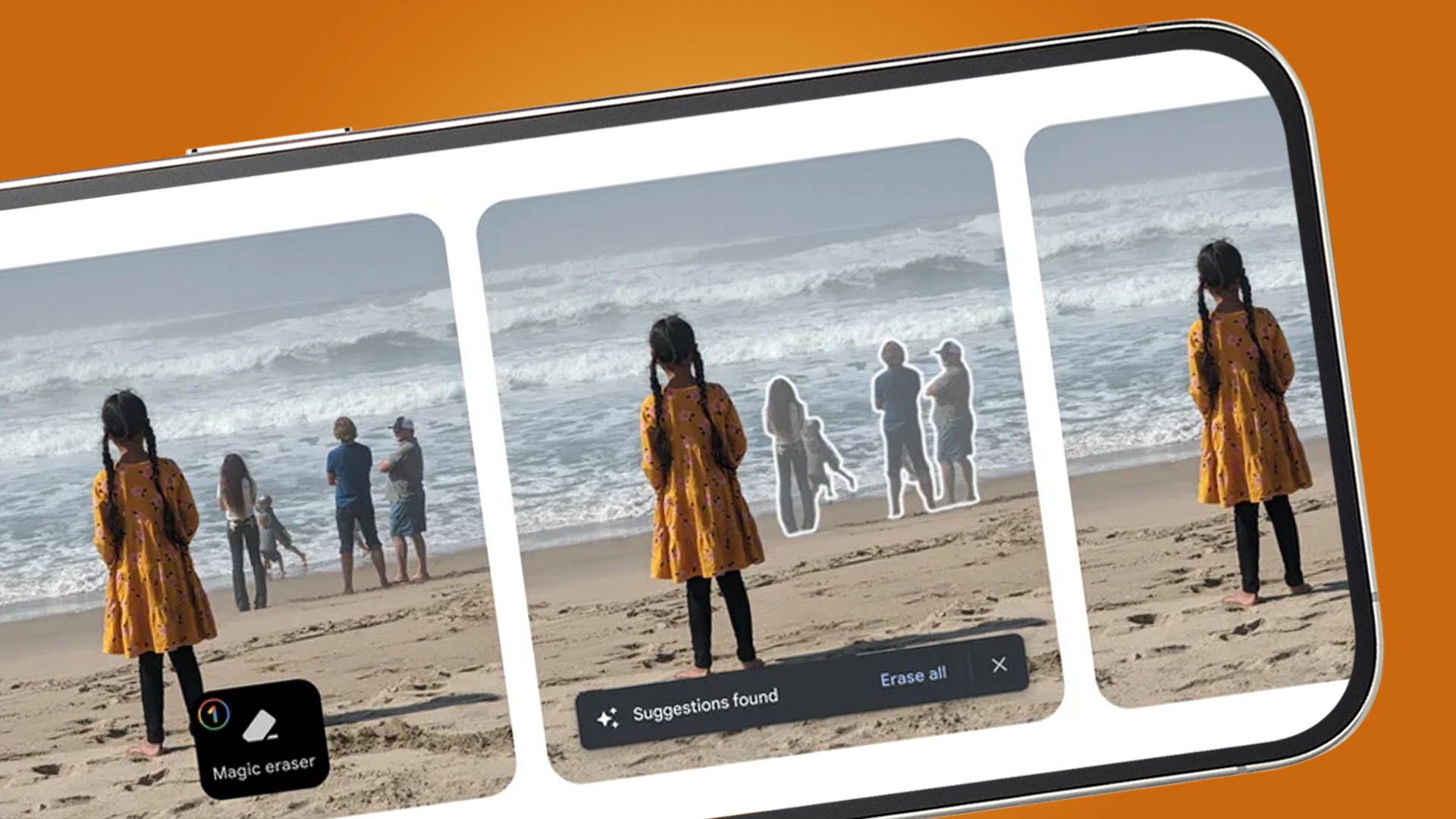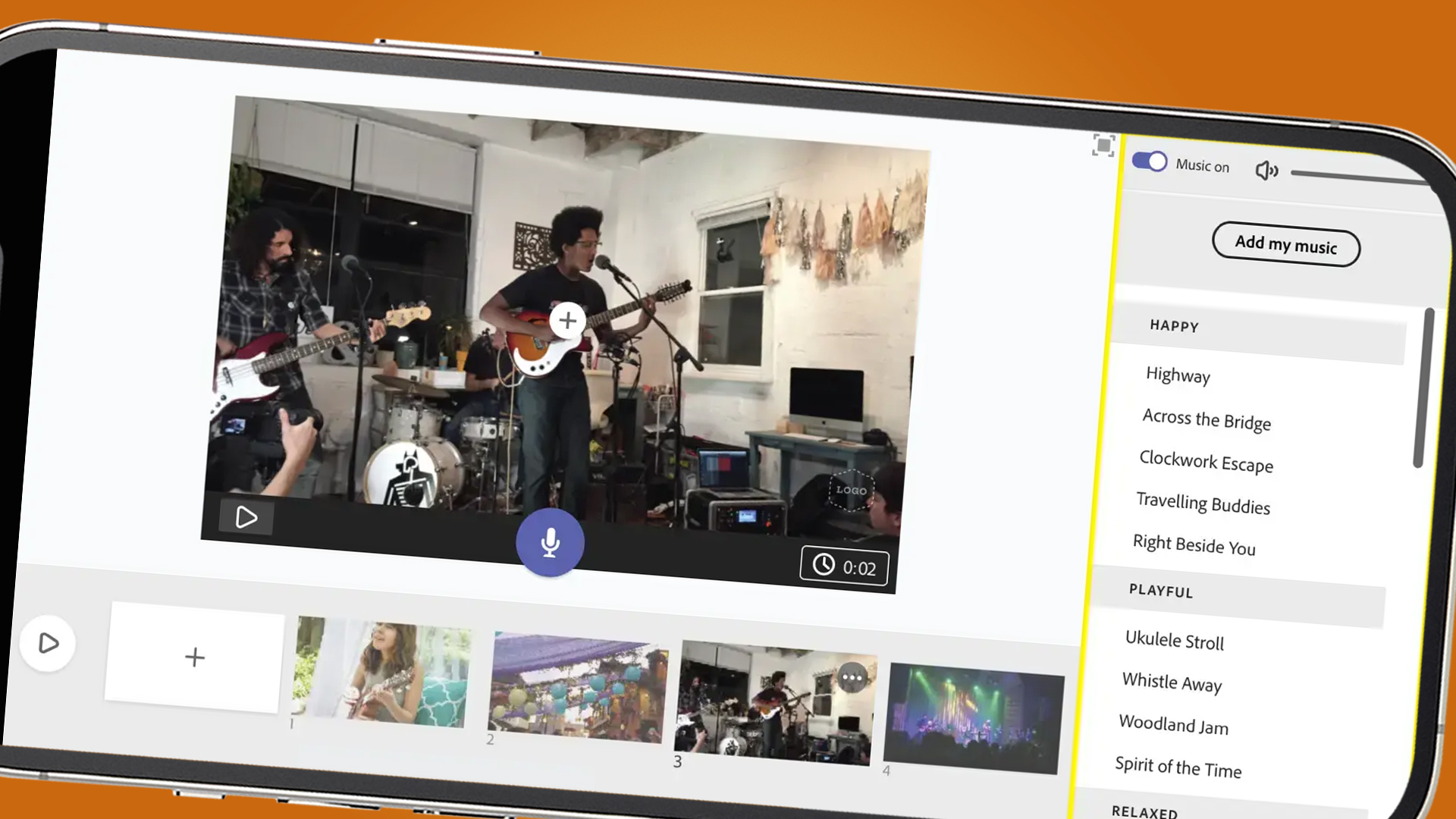Google says AI tricks like Magic Eraser are coming to your videos next
Google talks up the 'exciting' features coming for AI video

Google Photos AI tricks like Magic Eraser have just been opened up to all Google One subscribers, but now Google says it's planning to bring them to the next frontier: your videos.
In the latest edition of the company's Made by Google podcast, Senior Product Manager Zachary Senzer talks about how using AI to automatically edit videos, in a similar way to existing tools like Photo Unblur and Magic Eraser, is the next step for Google Photos. And that despite the challenges, there's "lots of exciting stuff on the way" for those who shoot moving images as much as stills.
While Google isn't ready to share any specifics yet, Senzer said that while the recent focus has been "on the the photo side, I'm personally really looking forward to doing more with videos". Through Google Photos and YouTube, he added that Google has seen that "people are capturing and creating way more with videos than ever before" and that "there's so much potential in the space to truly revolutionize what people can do with their videos".
Exactly how Google plans to do this isn't yet clear, but Google did just bring its HDR effect feature (below) to videos – and the likes of Photo Unblur and Magic Eraser give us a good guide. The latter would certainly be an incredible video feature, while automated cuts and convincing video bokeh (in a similar fashion to portrait modes) could both drastically reduce editing times and improve overall polish.

The reason why we haven't seen those features is the huge amount of processing power required to apply local edits to videos, in comparison to photos. As the podcast host Rachid Finge remarks, "most videos have 30 pictures a second, so it must be at least 30 times harder to do that". Zachary Senzer agrees that it's "definitely harder", but says that there are lots of "exciting' video-related features en route.
Like Google's photo-related AI features, it's likely that these would initially be restricted to Pixel phones that have Google's Tensor chip. Senzer says that for the Google Pixel 6 and Google Pixel 7 "we worked really closely with our AI researchers at Google to create machine learning models that run well on Tensor".
Given the far greater demands of video editing, that would likely be the case again for future editing tricks – but the recent spread of Magic Eraser and Photo Unblur to all Google One devices shows that automated video editing in Google Photos could ultimately be available on non-Pixel phones, too.
Sign up for breaking news, reviews, opinion, top tech deals, and more.
Analysis: Video editing is about to get easier

While some of today's best video editing apps, like Adobe Premiere Rush, Lumafusion and GoPro Quik do offer some automated video editing features, they don't have the scale of Google Photos – or offer quite the same one-touch usability as photo tricks like Magic Eraser.
Google was keen to talk about its role as a democratizer of simple editing, for both photos and videos, in its Made by Google podcast, with Zachary Senzer stating that it wants to make sure any "everyday person can go in and get those really awesome photos and videos in just a tap without that expertise required".
But while it certainly sounds like Google will bringing video editing tricks to Google Photos and Pixel phones in the near future, it isn't the only company that's excited about the potential of computational video.
Last year, Adobe's VP and Fellow Marc Levoy – who previously pioneered Google's computational photography modes for Pixel phones – said that computational video would be the next big imaging feature, adding that "for every magical new photographic experience feature companies have introduced on smartphones, there is an analogous feature one can imagine for video".
Levoy also strongly hinted that Adobe would enter the mobile video recording space, too. "Adobe has created the most powerful video editing software apps in the industry (mainly Premiere and After Effects), but has been reluctant so far to enter the video recording space," he said. "As mobile cameras get better, this becomes a natural next step," Levoy added.
So whether it's at Google I/O 2023 in May or Adobe Max 2023 later in the year, expect video to be the next big focus for AI-powered editing tools.

Mark is TechRadar's Senior news editor. Having worked in tech journalism for a ludicrous 17 years, Mark is now attempting to break the world record for the number of camera bags hoarded by one person. He was previously Cameras Editor at both TechRadar and Trusted Reviews, Acting editor on Stuff.tv, as well as Features editor and Reviews editor on Stuff magazine. As a freelancer, he's contributed to titles including The Sunday Times, FourFourTwo and Arena. And in a former life, he also won The Daily Telegraph's Young Sportswriter of the Year. But that was before he discovered the strange joys of getting up at 4am for a photo shoot in London's Square Mile.